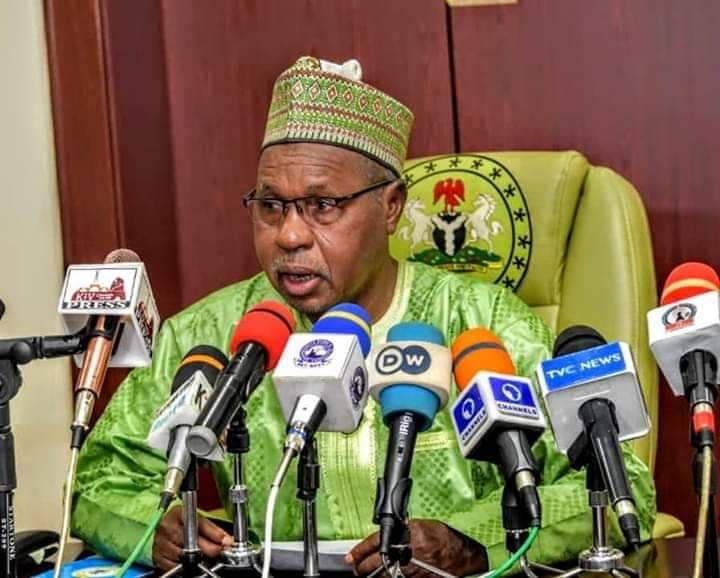Former speaker of the house of representatives, Aminu Masari has emphasised the need for governments to pay attention to the shifts in the perception of its citizens about democracy.
Delivering the keynote address at the 2024 Democracy Day Anniversary Lecture at the presidential villa in Abuja, he said it might be misleading to say the Nigeria’s democracy can weather all storms.
Speaking on the theme “25 Years of Enduring Democracy: The Prospects for the Future,” the former Katsina State governor said: “The first point is that we need to pay serious and continuous attention to the shifts in the perception of Nigerians about our democracy.
“It is easy to think that our democracy can continue to weather the storms because we have had 25 years of unbroken civil rule. That might be misleading.
“Democracy can continue to endure only when the people think it is desirable and thus worth keeping and defending.
“According to a 2022 survey by Afrobarometer, 70% of Nigerians polled prefer democracy to other forms of government. That is the good news.
ALSO READ: Police nab two bandits in Zaria, recover AK-47 rifle
“But 77% of those surveyed are not satisfied with the way democracy works in Nigeria, up from 57% in 2017. This should get us worried.
“We need to understand why our people are gradually losing faith in democracy, and we need to consciously strengthen their faith in democracy.”
Masari congratulated Nigerians on the 25th anniversary of continuous civil rule in the country, noting that this milestone was a major achievement, considering the country’s history of military rule and the doubts that many had about the endurance of democracy.
He highlighted the significant challenges that Nigeria has faced in its democratic journey and praised the armed forces for exercising restraint during these periods and allowing democracy to grow.
He added: “Our democracy can thus be said to be maturing in both age and temperament. It has been tested on many occasions, and it has stood firm.”
Citing some key historical developments, he said: “As we mark this important milestone of our democracy, we need to specially appreciate and acknowledge our armed forces not only for continuing to protect the country, but also for allowing our democracy to grow.
“It was not unlikely that during those trying periods some politicians and other disgruntled people were winking at or encouraging the military to take over. But they refused to be dragged in. We call on our armed forces to continue in that professional and principled path.
“There will always be challenges in a democracy, but the system also has adequate inbuilt mechanisms for resolving such challenges.
We have faced other key challenges, chief of which is lingering insecurity and the threat posed to the security of life and property by terrorists, bandits and insurgents in different parts of the country. But we have also made progress in many other areas in the last 25 years.”
He observed that there could have been more progress especially in the management of our economic and social affairs, and in terms of making the country more secure.
Masari urged the government to understand why people are losing faith in democracy and to strengthen their faith in it.
The former speaker also emphasised the need to deliver the benefits of democracy to the majority of the people.
He called for the government to eliminate poverty, reduce inequality, deepen human capacities, and expand opportunities in society.
The speaker highlighted the importance of engaging with the needs and mindsets of Nigeria’s youths, who constitute an overwhelming majority of the population.
He urged the government to create an enabling environment for the youths to thrive and to harness the demographic dividend.
Similarly, he stressed the need to redefine the concept of local governance in Nigeria.
He suggested that the government should redefine the functions and structure of local governments and remove the constitutional confusion about their status.
Masari appealed to politicians and the populace to continue strengthening and deepening democracy in Nigeria.
“One of the reasons why local government areas are not functioning effectively is because of the constitutional confusion about their status.
“On one hand, the local government areas are supposed to be autonomous of the states and are all listed in the constitution. But the same constitution creates joint accounts for states and LGAs, puts the LGAs under the supervision of the states, and mandates the state parliaments to make laws for the LGAs.”
NIGERIAN TRIBUNE
